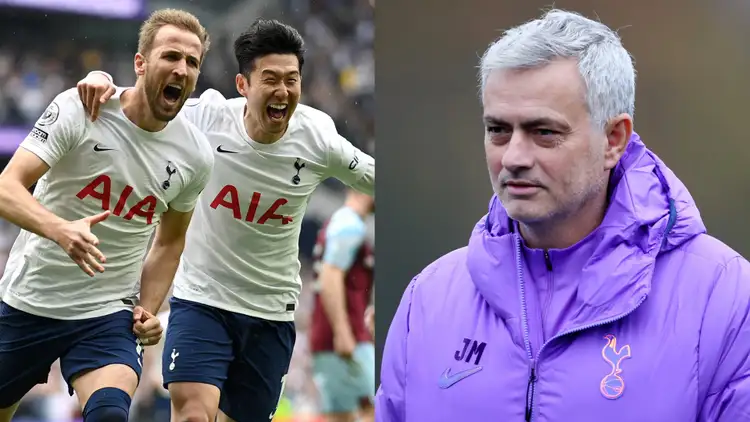He can’t perform unless he’s in a Man City super team.” Three Lions fans are all in agreement after watching Phil Foden against Albania.

Phil Foden walked onto the pitch with thirty minutes left to play, and nobody inside the stadium clapped louder than the England fans who wanted to see their star shine again. It was supposed to be another night where the Manchester City forward reminded the world of what he could do, a night where he grabbed the game by the throat and made it his. But football does not always follow the script, and the story that unfolded became something far different from what many expected. England beat Albania 2-0 thanks to two second-half goals from Harry Kane, and the Three Lions qualified for next summer’s World Cup. Yet after the final whistle, the biggest discussion across England was not about Kane, not about qualification, not even about the win. The whole conversation was about Phil Foden and whether he still deserved to be in the national team at all.
It was strange to think about. This was the same Phil Foden who was loved deeply by Manchester City fans, the same Phil Foden who had been called “the Stockport Iniesta,” the same Phil Foden who had won almost everything at club level before the age of 25. But football can be unbelievably cruel. A player can be a hero one week and a target the next, and that is exactly what Foden was experiencing. England fans had gone from cheering him to questioning him, from believing in him to doubting him, from expecting brilliance to accusing him of disappearing during international games. Social media became a battlefield the moment the match ended, and it was clear people were not holding their punches.
Some supporters were tired of waiting for Foden to deliver on the international stage. One fan posted on X: “Phil Foden should be nowhere near that World Cup squad.” Another supporter went even further, saying Foden had become a squad player for England and that Eberechi Eze should now be the real super sub. Every post carried emotion, frustration, and disappointment. The internet was burning with opinions, and almost all of them were negative. It did not matter that Foden had assisted Eberechi Eze in the match against Serbia earlier in the competition. It did not matter that he had performed brilliantly for Manchester City this season. England fans wanted impact in the international shirt, and they believed he wasn’t giving it.
There was a brutal comment from another fan who wrote: “Foden can’t perform unless he’s in a super Man City team. Ghosted consistently for England.” This was a punch straight to the heart of the midfielder. To be told that he was only good because he played in a strong system at Manchester City must have cut deeper than anyone could imagine. For years, Foden fought for respect, fought to be seen as a player who could shape games, not someone who depended on others to shine. He worked hard on his development under Pep Guardiola, he pushed himself to evolve as a footballer, he tried to carry leadership even though he was still young. Yet all that seemed forgotten within seconds on social media.
Another supporter added to the fire by pointing out a statistic comparing Harry Kane and Foden. They claimed that by the end of this season, Kane would likely have more goals for Bayern Munich in three seasons than Foden had scored for Manchester City in his entire career. They also mentioned that Kane had scored more knockout goals for England than Foden had goals in total for the national team. Whether the statistic was accurate or not did not matter. What mattered was that it was used to paint Foden as someone who simply did not rise to the big moments when it came to England.
One post struck even harder: “England are their own downfall. They want to build the team around Foden but he’s not giving what it takes.” The message could not have been clearer. For many supporters, Foden was not the star they once imagined. He was not the player they dreamed he would become for their country.
The reactions did not stop. Another person wrote: “Saka has been England’s best player for 4 years at least. Consistently. Yet one half decent game for Foden or Cole Palmer and pundits will talk like we should build the team around them. Just weird.” Bukayo Saka was being lifted while Foden was being questioned. That comparison created another wave of debate because some fans believed Saka should be the star of the national team and that Foden should not be treated like an automatic starter.
One of the most painful comments said: “There is a reason Foden has long struggled to make impact with England. Not a bad player but needs conditions to be favourable.” That meant that Foden was not the type of footballer who could carry a team alone. It meant that he needed everything around him to be perfect before he could shine. It meant that he lacked something every top player needed — independence on the pitch. Even worse, this fan pointed out that when Cole Palmer was moved to the number ten position, his performances dropped because he performed better when he was out wide. It was a subtle dig at Foden’s inability to adapt to different systems.
And then came the most devastating comment of all, short and sharp like a knife: “What does Foden even do?” A sentence like that is more powerful than paragraphs. It is the type of criticism that stays in a footballer’s mind forever.
But as social media raged, one thing remained silently true — Phil Foden was not finished. His career was not over. His story was not written. He came off the bench against Albania and did not produce the magic many hoped for. But does one match define a player? Does a quiet international period erase club achievements? Football fans live in the moment, and the moment right now was emotional and unforgiving. But that does not mean tomorrow cannot change everything.
There is also another side to the story. Thomas Tuchel has many attacking options to choose from. The England team is packed with some of the best forwards and attacking midfielders in the world. Bukayo Saka, Eberechi Eze, Cole Palmer, Jude Bellingham, Marcus Rashford, Anthony Gordon, and more. The competition is brutal. Someone is always going to be left out. Someone is always going to be disappointed. But it still hurts when the player left out is someone who dreamed of becoming the face of England.
While negotiations for a new Manchester City contract continue, Foden is in one of the most challenging battles of his career. His form for City is unbelievable, his numbers are strong, his influence in Guardiola’s system is growing. But the World Cup is a different battlefield, and only the strongest can survive that selection process. If Foden does not raise his level for England, he could miss out. The idea of Phil Foden watching the World Cup from home instead of being on the pitch sounds like fiction, but opinions online show that many fans believe that outcome is possible.
But every great football story has a moment where the hero is knocked down before rising again. Foden has been doubted before. He has been called too small, too soft, too quiet. People said he would never become a key player in a Guardiola team. They said he was not ready. They said he would get lost in the world of elite footballers. And he proved everyone wrong. He rose through the fire before, and he can do it again.
The truth is that Foden is not just fighting for a place in the England squad. He is fighting for respect. He is fighting to show the world that he is more than a bench option. He is fighting to show that he is not a luxury player who shines only at Manchester City but a footballer who can conquer any environment and any stage. The World Cup is the biggest football theatre on earth, and Phil Foden knows he must arrive there as a warrior, not a question mark.
Maybe this criticism will fuel hm. Maybe these comments will ignite him. Every great footballer has a moment when people doubt them before they come back stronger. Cristiano Ronaldo, Lionel Messi, Harry Kane, Neymar, Bellingham — all of them faced times when the world turned against them. What matters is how a player responds.
Foden now stands at that crossroads. The next time he wears the England shirt, there will be millions of eyes waiting to see one of two outcomes — redemption or repeat. Fans love football emotions, and right now emotions are high. But football is unpredictable. One brilliant performance can flip the narrative instantly. One moment of magic can erase months of criticism. One goal can silence an entire crowd. That is the power Foden still holds.
England celebrated the win over Albania and qualification to the World Cup. But Phil Foden walked away with the biggest challenge of all — the challenge of proving he still belongs. The clock is ticking. The World Cup is coming. The pressure is huge. But pressure is not only a weight. It is also a launchpad. What comes next will define who Phil Foden becomes in the eyes of a nation.
He can let the criticism crush him, or he can use it as fuel to return stronger than ever. And if there is one thing football has taught the world, it is that the moments of doubt often come right before the greatest comeback















